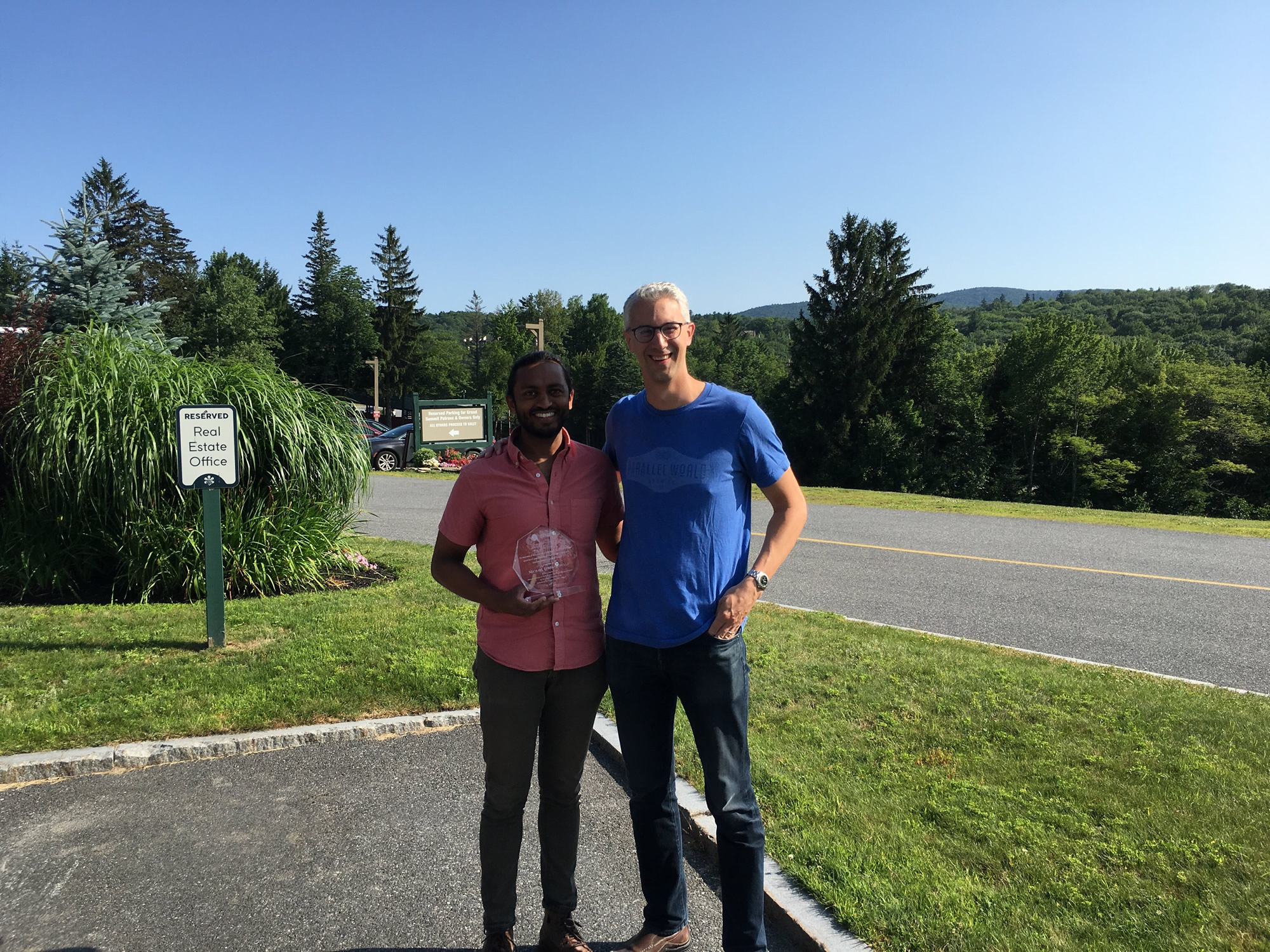First awarded in 2016 and sponsored annually by the Board of Directors of the International Biomedical Research Alliance, the Innovation Award recognizes novel solutions in biology or medicine and is presented for discovers of unusual importance, application, or magnitude that make use of new or unusual methods, paradigms or approaches to solve important problems in biology or medicine. This year, the Innovation Award was presented to NIH-Cambridge Scholar, and El-Hibri Biomedical Research Scholar, Michael Fernandopulle. Michael is a Class of 2016 scholar pursuing a MD/PhD (MD in progress) at the Northwestern University Feinberg School of Medicine. His mentors are Dr. Michael Ward, of the National Institute of Neurological Disorders and Stroke, and Dr. Peter St George-Hyslop of the Department of Clinical Neurosciences at Cambridge.
Michael discovered that Annexin A11, a protein implicated in familial amyotrophic lateral sclerosis (ALS), enables long-range transport of RNA molecules in neuronal axons. Annexin A11 serves to tether RNA, which exists in the cell within “liquid droplets” of protein, to lysosomes, which are organelles that move bidirectionally along neuronal processes. This discovery illuminated a previously uncharacterized process that is critical for the long-term survival and maintenance of neurons, and that appears to be disrupted in neurodegenerative diseases. Michael’s study is also the first description of a protein that can function as a tether between “membraneless” liquid droplets and a membranous organelle.
Michael is currently investigating the biophysical regulation of Annexin A11 function. He is broadly interested in how metabolic regulation and membrane trafficking influence neuronal cell biology. After medical school, Michael plans to pursue a neurology residency on his way to establishing an independent research group.
We wish Michael continued success in his research and doctoral career!

